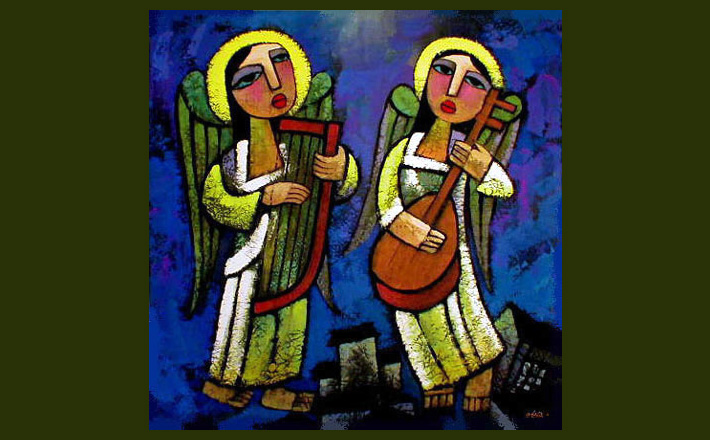Commentary on 1 Kings 18:20-21 [22-29] 30-39
450 v. 1 is truly no contest.
Prophetic ministry in ancient Israel is quite the multifaceted life. Our modern perceptions often perceive prophetic ministry as lonely and contemplative, analogous to a type of desert spirituality associated with Isaiah 40:3 (“a voice crying out in the wilderness.”)
Most significantly, Christians typically correlate prophetic activity to predictions. Whereas prophecy can certainly be contemplative and predictive, this week’s reading reminds us that prophetic life is also active, vibrant, exhausting, and requiring of grit and determination.
Elijah begins the narrative by asking, “How long will you go limping with two different opinions? If the LORD is God, follow him; but if Baal, then follow him” (verse 20a). The question is pertinent, honest, and urgent. And despite the gravity, the answer was an underwhelming silence: “The people did not answer him a word” (verse 20b). I suppose that anyone on planet earth who has taught a class or a Bible study can relate.
The lackadaisical response of the people could have frustrated Elijah. But instead of sorrow, contemplation, nor portending of future disaster, Elijah pulls himself to action. Within this brief passage, and a hostile environment, Elijah does the following:
- Summons the people (verse 30)
- Repairs the altar of YHWH (verse 30)
- Builds an altar with stones (verse 32)
- Digs a sizeable trench (verse 32)
- Arranges the offering wood (verse 33)
- Slaughters a bull (verse33)
These tasks are significant physical undertakings. (Have you ever dug a sizeable hole in the ground or slaughtered a bull?). These actions augment the tenacious spirit of the prophet in his mocking of the 450 Baal prophets. In the midst of a religious crisis, the prophet undergoes extensive activity to prepare for the contest against Baal.
As a result, the people begin to respond much differently to the words of Elijah. Remember back in verse 20 that “the people did not answer him a word.” That silent response contrasts with the alert and eager responses of the people in verses 30-39, where the people suddenly respond to Elijah with great alacrity. Perhaps the flurried activity of Elijah inspires a similar response from the people of Israel.
- And Elijah said… “Draw near to me,” and all the people drew near to him (verse 30).
- And he said, “Fill four jugs of water, and pour it on the whole burnt offering and on the wood!” (they did it; verse 33)
- And he said “Do it again!” and they did it again (verse 34a)
- And he said “Do it a third time” and they did it a third time.” (verse 34b)
Elijah and the people of Israel have matched the fervent activity of their Baal opponents. But despite all of these actions, the prayer of Elijah does not center on this activity, nor the obedience of the people. Rather, the prophet highlights the character of God, and the nature of his relationship to God. Elijah acknowledges God, the connection with the patriarchs, and the prophet’s divine servanthood.
By turning to God, the contest is no longer contest. The strength of the Lord goes far beyond the many prophets. In recognizing this, Elijah boldly invokes God to “Answer me, that this people may know that you, YHWH, are God, and you have turned their heart back” (verse 37).
Now, after the prophet is moved to word and deed, the people answer. And then at the culmination of the passage, God answers, and he answers big! He shows that he is indeed the Lord of Creation by bringing down fire to consume the burnt offering, the wood, the stone, the dirt and the water in the trench. This fire burns with ferocity beyond the normal physics of fire. God has indeed answered.
This passage teaches us that the strength of God prevails in any contest. By exhorting God, Elijah acknowledges that he himself cannot defeat the 450 prophets of Baal. But it should be remembered that Elijah did all of the tough activity that we often do not subscribe to prophetic activity. In the end, that activity was enough to bring about victory, perhaps not because it was efficacious, but because it was able to put the prophet and the people in a place to really look to God and not themselves.
When we are hurried, stressed, overwhelmed by our own whirlwind of activity, we can be inspired by the passage, not in our own actions. But by them, together with the people of Israel, we can fall on our faces and victoriously proclaim, “The LORD indeed is God; the LORD indeed is God” (verse 39).


June 2, 2013